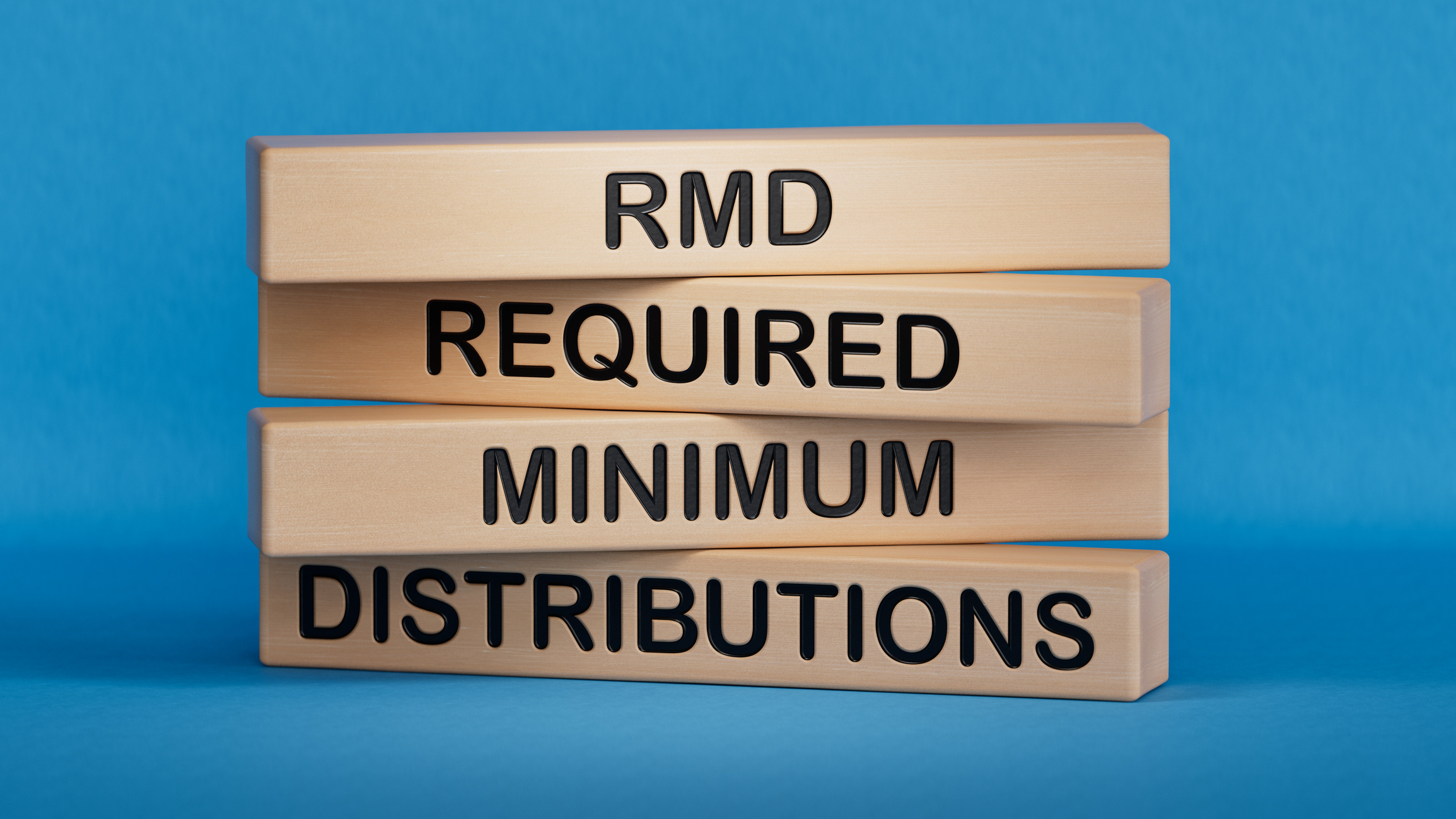Too Rich for a 401(k)?
If you are a highly compensated employee and your employer returned some of the money you contributed to a 401(k), you'll have to report that as income on your tax return.

Profit and prosper with the best of Kiplinger's advice on investing, taxes, retirement, personal finance and much more. Delivered daily. Enter your email in the box and click Sign Me Up.
You are now subscribed
Your newsletter sign-up was successful
Want to add more newsletters?

Delivered daily
Kiplinger Today
Profit and prosper with the best of Kiplinger's advice on investing, taxes, retirement, personal finance and much more delivered daily. Smart money moves start here.

Sent five days a week
Kiplinger A Step Ahead
Get practical help to make better financial decisions in your everyday life, from spending to savings on top deals.

Delivered daily
Kiplinger Closing Bell
Get today's biggest financial and investing headlines delivered to your inbox every day the U.S. stock market is open.

Sent twice a week
Kiplinger Adviser Intel
Financial pros across the country share best practices and fresh tactics to preserve and grow your wealth.

Delivered weekly
Kiplinger Tax Tips
Trim your federal and state tax bills with practical tax-planning and tax-cutting strategies.

Sent twice a week
Kiplinger Retirement Tips
Your twice-a-week guide to planning and enjoying a financially secure and richly rewarding retirement

Sent bimonthly.
Kiplinger Adviser Angle
Insights for advisers, wealth managers and other financial professionals.

Sent twice a week
Kiplinger Investing Weekly
Your twice-a-week roundup of promising stocks, funds, companies and industries you should consider, ones you should avoid, and why.

Sent weekly for six weeks
Kiplinger Invest for Retirement
Your step-by-step six-part series on how to invest for retirement, from devising a successful strategy to exactly which investments to choose.
This is the time of year a lot of readers are confused by what I call "boomerang 401(k) contributions." This happens when company retirement plans kick out some of the contributions made during the previous year by highly compensated employees -- generally those who made more than $100,000 in 2007.
Such corrective distributions are required if the plan discovers that highly paid employees contributed too much of their salaries compared with the amount contributed by lower-paid workers.
This test is required by Congress to prevent the tax benefits of 401(k)s from going disproportionately to higher-paids. Because the test can't be completed until after the plan year closes, the checks for any excess contributions are mailed out after January 1.
From just $107.88 $24.99 for Kiplinger Personal Finance
Become a smarter, better informed investor. Subscribe from just $107.88 $24.99, plus get up to 4 Special Issues

Sign up for Kiplinger’s Free Newsletters
Profit and prosper with the best of expert advice on investing, taxes, retirement, personal finance and more - straight to your e-mail.
Profit and prosper with the best of expert advice - straight to your e-mail.
But how to do you report that money on your tax return? It depends on the timing.
If a plan makes such a corrective distribution by March 15, then you report it as part of your 2007 salary -- even though it means reporting more salary than is shown on your W-2. After all, the W-2 amount was set assuming all the 401(k) money you contributed would avoid tax. The corrective distribution retroactively reduces the amount in the tax shelter and hikes your taxable pay.
If the company makes the payout after March 15, it counts as 2008 salary.
Oh, yeah: If you filed your 2007 return before you got a corrective distribution -- and you got the money by March 15 -- you're supposed to file an amended return using Form 1040X to report and pay tax on the extra money.
Profit and prosper with the best of Kiplinger's advice on investing, taxes, retirement, personal finance and much more. Delivered daily. Enter your email in the box and click Sign Me Up.

-
 Betting on Super Bowl 2026? New IRS Tax Changes Could Cost You
Betting on Super Bowl 2026? New IRS Tax Changes Could Cost YouTaxable Income When Super Bowl LX hype fades, some fans may be surprised to learn that sports betting tax rules have shifted.
-
 How Much It Costs to Host a Super Bowl Party in 2026
How Much It Costs to Host a Super Bowl Party in 2026Hosting a Super Bowl party in 2026 could cost you. Here's a breakdown of food, drink and entertainment costs — plus ways to save.
-
 3 Reasons to Use a 5-Year CD As You Approach Retirement
3 Reasons to Use a 5-Year CD As You Approach RetirementA five-year CD can help you reach other milestones as you approach retirement.
-
 3 Retirement Changes to Watch in 2026: Tax Edition
3 Retirement Changes to Watch in 2026: Tax EditionRetirement Taxes Between the Social Security "senior bonus" phaseout and changes to Roth tax rules, your 2026 retirement plan may need an update. Here's what to know.
-
 States That Tax Social Security Benefits in 2026
States That Tax Social Security Benefits in 2026Retirement Tax Not all retirees who live in states that tax Social Security benefits have to pay state income taxes. Will your benefits be taxed?
-
 Retirees in These 7 States Could Pay Less Property Taxes Next Year
Retirees in These 7 States Could Pay Less Property Taxes Next YearState Taxes Retirement property tax bills could be up to 65% cheaper for some older adults in 2026. Do you qualify?
-
 Social Security Benefits Quiz : Do You Know the IRS Tax Rules?
Social Security Benefits Quiz : Do You Know the IRS Tax Rules?Quiz Social Security benefits often come with confusing IRS tax rules that can trip up financially savvy retirees and near-retirees.
-
 6 Tax Reasons to Convert Your IRA to a Roth (and When You Shouldn't)
6 Tax Reasons to Convert Your IRA to a Roth (and When You Shouldn't)Retirement Taxes Here’s how converting your traditional retirement account to a Roth IRA can boost your nest egg — but avoid these costly scenarios.
-
 New RMD Rules: Can You Pass This Retirement Distributions Tax Quiz?
New RMD Rules: Can You Pass This Retirement Distributions Tax Quiz?Quiz Take our RMD quiz to test your retirement tax knowledge. Learn about RMD rules, IRS deadlines, and tax penalties that could shrink your savings.
-
 10 Retirement Tax Plan Moves to Make Before December 31
10 Retirement Tax Plan Moves to Make Before December 31Retirement Taxes Proactively reviewing your health coverage, RMDs and IRAs can lower retirement taxes in 2025 and 2026. Here’s how.
-
 Social Security Tax Limit Rises Again: Who Pays More in 2026?
Social Security Tax Limit Rises Again: Who Pays More in 2026?Payroll Taxes The Social Security Administration has announced significant changes affecting millions as we approach a new year.